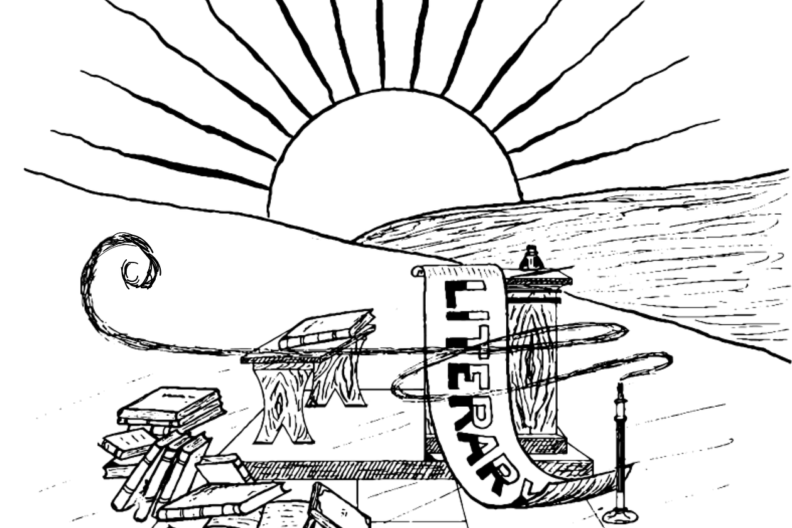“This has definitely been an invaluable experience in more than one way. I have gained useful and practical skills in video-making, and have also been exposed to a variety of different platforms that offer different skills and techniques for depicting my story. More than that, however, I have also gained the necessary confidence in self-expression and articulation; this workshop has definitely encouraged me to build on my capability to tell a personal and intimate story in a new, original, and authentic digital form. […] this workshop has not only added pragmatic value to my self-development, but also some level of personal value. Furthermore, I have learnt to be more comfortable with sharing my story with others and receiving critical feedback, a necessary and important feature that I couldn’t quite come to terms with before. I have also found that the small group sizes have been especially beneficial in developing my confidence, and it helps that the instructors were so invested and enthusiastic about the whole programme, as this made me feel like what we were doing and what we had to say were worthwhile.”
Digital Storytelling in English Studies

Digital Storytelling in English Studies
It is no surprise that theories of storytelling and an understanding of the creative process are already inherent to the discipline of English Literature. (Teti’s PhD thesis and subsequent monograph The Return of the Storyteller in Contemporary Fiction (2014) was specifically about this very thing!) Digital Storytelling workshops offer a way to help students understand the connection how their experiences at an academic level are inflected with their own sense of identity that they bring to bear as readers and students.
English Studies students have used digital storytelling to:
- shape their future careers, including in teaching, journalism, and the creative industries
- recognise their transferrable skills, such as referencing or critical analysis
- foster their personal and scholarly resilience by reflecting on threshold moments in their learning
- enhance their appreciation of the creative techniques used by literary author
This was the first of the digital storytelling projects in the university and very exciting for Teti who had worked in English studies as a PhD student and as a post-doc for many years in the long distant past and she was really lucky to have found such a great collaborator in Dr Alistair Brown. In the posts below, we provide a main overview of how the digital storytelling projects in English have developed, their focus and work in relation to supporting learning and development, as well as discussing future plans and developments in this discipline.

Digital Storytelling Pilot (2019)
During this pilot, English Studies undergraduate students at Levels 1 and 2 undertook DS workshops. As well as embodying core DS principles, the pilot aimed to explore the impact of DS on students in ways particularly relevant to the discipline of English:
- whether DS could develop these students’ digital skills in a way beneficial for careers relevant to English. Research by Dr Brown, as an investigator on Creative Fuse North East, has shown that the fusion of creative skills with digital skills are essential within the creative industries, which are growing at double the rate of the baseline economy. As the name suggests, digital + storytelling has the potential to be one point of fusion for graduates into that pipeline.
- whether DS enables undergraduates to reflect upon meaningful moments in their learning, with possible improvements to their resilience, meta-cognitive awareness, learning community integration, and confidence.
- the potential for DS to be formalised as a method for assessment or collaborative work within English. English has a growing Creative Writing programme at postgraduate level. We also provide students with opportunities to work collaboratively in tutorials and seminars. However, creativity and collaboration are not generally formally assessed within the English Studies curriculum. Digital storytelling sits within this space.
The pilot course was incredibly successful in that all of the students were overhwlemingly positive about the experience, skills and value of the course on their professional and personal lives and trajectories. You can read more about this in the student blogs below.
Check out the digital stories from English Studies students here

Digital Storytelling Workshops 2020-21
Following the informative pilot year, in June 2020 and June 2021 we provided a refined series of Digital Storytelling opportunities from many more English undergraduates. Due to Covid-19, the programme was redevised around a flipped classroom model, with most content provided on the VLE and Zoom workshops providing an opportunity for development and peer sharing. This also provided the opportunity to further tailor the core Digital Storytelling approach in the context of English literature, drawing on lessons learned from the pilot year. Developments included:
- Reflective work to encourage students to think about their current experiences of storytelling within curriculum, and narrative theory.
- An extensive learning module on ‘copyrights, canons and authorship in English’. This starts by summarising the history of copyright and how it has been used to shape the literary canon, and moves to consideration of how open licenses like Creative Commons potentially enable more diverse and inclusive forms of content creation and sharing; it also identifies how English students’ learning of the standards o referencing and bibliography might be relevant to their creative work
- A post-course activity on ‘English, Digital Storytelling and the Creative Industries’. This invites students to reflect on how their digital storytelling has drawn on key skills they have already developed in English, and how these same skills might now transfer to future careers in the creative industries.
There was a much larger cohort and interest in the workshops in the next two years and the feedback from the students was overwhelmingly positive. Again you can read more about this in the posts from English students on this site.
Student and Staff Reflections & Feedback
The following provides feedback and reflections from English students about the digital storytelling workshops and how this had supported their professional and academic development as well as their future skills into employability. There is also some reflection and feedback from Dr Alistair Brown about the way in which Teti’s digital storytelling facilitator training and the collaborative work on the digital storytelling projects Teti and Alistair developed in English Studies, have shaped his own professional development and future plans.

Future Developments for DS Work in English Studies
With a honed programme of content and activity now developed, we aim to continue to offer Digital Storytelling to English Studies undergraduates. It is also intended to offer DS to English PhD researchers who are about to begin training as Teaching Assistants. This will explore whether DS could support attendees to build a bridge between their identity and approaches as a researcher and how this background translates into the classroom.
The DS pilot was identified by English Studies to have made a significant contribution to students in English Studies. The HoD Professor, Alistair Renfrew has written a letter of support and endorsement in response whereby he hopes ‘he can extend the opportunity to larger cohorts of students’ and to ‘developing PHD students’ around teaching, outlining the innovative nature and potential of DS which my work across the university and beyond has demonstrated.
We are excited about what this will bring!
